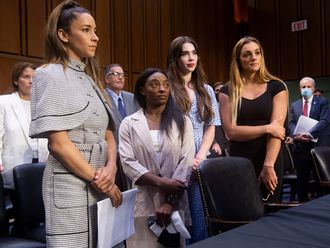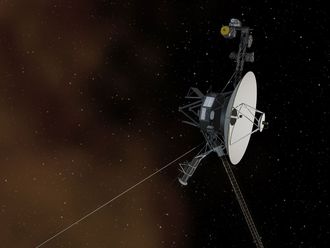
Washington: Hillary Clinton’s campaign is planning its most ambitious push yet into traditionally right-leaning states, a new offensive aimed at extending her growing advantage over Donald Trump while bolstering down-ballot candidates in what party leaders increasingly suggest could be a sweeping victory for Democrats at every level.
Signalling extraordinary confidence in Clinton’s electoral position and a new determination to deliver a punishing message to Trump and Republicans about his racially tinged campaign, her aides said Monday that she would aggressively compete in Arizona, a state with a growing Hispanic population that has been ground zero for the country’s heated debate over immigration.
Clinton is “dramatically expanding” her efforts in Arizona, her campaign manager, Robby Mook, told reporters Monday. She is pouring more than $2 million into advertising and dispatching perhaps her most potent surrogate, Michelle Obama, for a rally in Phoenix on Thursday.
In Indiana and Missouri, Mook said, the campaign will spend a total of $1 million to drive voter turnout, despite what he acknowledged was an “uphill battle” for Clinton in two states that could determine control of the Senate. Clinton is also directing more money to a series of presidential battleground states with competitive House races.
The manoeuvring speaks to the unexpected tension facing Clinton as she hurtles toward what aides increasingly believe will be a decisive victory — a pleasant problem, for certain, but one that has nonetheless scrambled the campaign’s strategy weeks before Election Day: Should Clinton maximise her own margin, aiming to flip as many red states as possible to run up an electoral landslide, or prioritise the party’s congressional fortunes, redirecting funds and energy down the ballot?
Thanks to an infusion of contributions in recent weeks, and what aides describe as a war chest they had maintained in case the opportunity arose, Clinton is in effect trying to do both.
The double-barrelled assault illustrates her priorities three weeks before Election Day. She hopes to hand Trump a loss so humiliating that it jars him and Republicans, removing any doubt about the wisdom of running on a grievance-oriented platform. But she also is demonstrating to the congressional Democrats with whom she may soon be working that she is also is dedicated to expanding their ranks.
“I think it’s an act of good will, because her numbers look good and some of our races are tighter,” said Rep. Dina Titus of Nevada, one of the states receiving cash. “But it’s also an important move, because she’s going to need friends to get her appointments approved, to have our help breaking through the obstruction on the other side to get legislation through.”
After nearly eight years in which Democrats on Capitol Hill grumbled about a lack of such support from President Barack Obama, Clinton has taken care to stay in frequent contact with Sen. Chuck Schumer, her former New York colleague, about down-ballot races.
Schumer, poised to be the incoming Senate Democratic leader, and the current leader, Harry Reid of Nevada, met with Clinton’s top campaign aides in Washington last month and pressed them to offer financial support for the Senate races, according to a Democratic official briefed on the meeting. And Schumer has not been shy since about his hope that if Clinton clearly appeared on her way to winning the race, she would redirect some money to congressional races.
“This is one of many things that the Clinton campaign is doing to help us win a majority in the Senate,” Schumer said through a spokesman.
While party strategists are glad to have the money that Clinton is directing from the Democratic National Committee to voter-turnout efforts in Indiana and Missouri, they have little appetite for Clinton to visit those states, where she is likely to lose, because that would make it easier for Republicans to tie Democratic Senate candidates to her.
Clinton is also pouring money into two congressional districts, in Nebraska and Maine, that both apportion their own presidential electoral vote and have competitive House races. And she is sending an additional $6 million to seven presidential battleground states with hotly contested Senate and House campaigns.
Democrats are also attempting to unseat Sen. John McCain of Arizona from the seat he was first elected to in 1986, but Clinton’s late decision to swoop into that state is not related to his race, which few Democratic leaders believe they can win. Her incursion there is about her own campaign — and the Democrats’ desire to focus attention on the damage Trump has done to Republicans with Hispanics.
In particular, Democrats hope to make an example of Sheriff Joe Arpaio, an ardent Trump supporter, by defeating the Phoenix lawman, whose incendiary comments about Hispanics and aggressive tactics with immigrants have garnered attention far beyond his jurisdiction in Maricopa County.
“If Democrats were going to win in Arizona in 2016, you’d need a Republican who turns off Republican women, who really energises Latinos, and you’d need other races on the ground that can really drive engagement — and we have all that,” said Andrei Cherny, a former state Democratic chairman.
Alexis Tameron, the current state Democratic chairwoman, said Republican stumbles had allowed local Democrats to “jump our own timeline” for when officials expected to make the state competitive on the presidential level.












